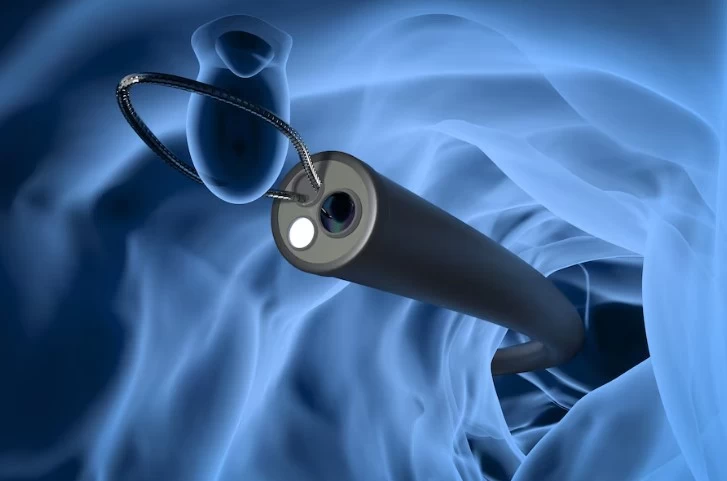
What You Need to Know About Colonoscopy
- What You Need to Know About Colonoscopy
- What is Colonoscopy, and Why is it Performed?
- The Colonoscopy Procedure
- Advantages of Colonoscopy
- Post-Colonoscopy Process
- Who Should Undergo Colonoscopy?
- Addressing Colonoscopy Fear and Concerns
- Conclusion
Colonoscopy is an endoscopic procedure used to examine the inner structure of the large intestine, playing a crucial role in diagnosing various gastrointestinal issues. As a General Surgery specialist, I aim to provide detailed information about the colonoscopy process, its advantages, and address commonly asked questions to guide my patients through this procedure.
What is Colonoscopy, and Why is it Performed?
Colonoscopy is a procedure that allows for a detailed examination of the inner lining of the colon (large intestine) using a flexible tube called a colonoscope. This device is equipped with a light and camera at its tip, enabling the doctor to visualize the colon's inner surface on a monitor. Colonoscopy is vital for diagnosing bowel diseases, detecting and removing polyps, monitoring inflammatory bowel diseases (such as ulcerative colitis and Crohn's disease), and facilitating early detection of colorectal cancer.
The Colonoscopy Procedure
Colonoscopy requires a specific preparation process that spans several days before the procedure to ensure the bowel is thoroughly cleansed. This preparation typically includes the following steps:
- Dietary Changes: A few days before the procedure, a low-residue, light diet is recommended. Patients are usually placed on a clear liquid diet the day before the procedure to aid in bowel cleansing.
- Bowel Cleansing Medications: Patients are given special laxatives to clear the bowels. These medications accelerate bowel movements, removing all waste material from the body. A clean bowel is essential for a successful and effective colonoscopy.
- Pre-Procedure Instructions: Patients receive specific guidelines regarding fluid intake and medication use before the procedure.
During the colonoscopy, patients are typically administered mild anesthesia or sedation to ensure they remain comfortable and pain-free. The colonoscope is gently inserted through the rectum, allowing the doctor to carefully examine the colon. If suspicious areas are observed, biopsies can be taken, and polyps or similar structures can be removed during the procedure.

Advantages of Colonoscopy
Colonoscopy offers several significant advantages, which can be summarized as follows:
- Early Diagnosis: Colonoscopy is highly effective in the early detection of serious diseases, such as colorectal cancer. Identifying cancerous or precancerous lesions early significantly increases treatment success.
- Therapeutic Benefits: In addition to diagnostic purposes, colonoscopy can also be used for treatment. For example, polyps detected during the procedure can be removed immediately, reducing the risk of future cancer development.
- Reliability: Colonoscopy is a highly reliable method for identifying bowel issues. It is effectively used for diagnosing and monitoring conditions like irritable bowel syndrome, diverticulitis, ulcerative colitis, and Crohn's disease.
- Minimally Invasive Procedure: As a non-surgical intervention, colonoscopy allows patients to quickly return to their normal routines after the procedure.
Post-Colonoscopy Process
After the procedure, patients are generally advised to rest for a short period. Once the effects of the anesthesia subside, they can resume their normal activities. Mild gas discomfort or cramping may occur but usually resolves within a few hours. However, if there is bleeding or severe pain, medical attention should be sought.
Who Should Undergo Colonoscopy?
Colonoscopy is recommended for individuals in certain age and risk groups as a routine procedure. Specifically:
- Individuals over 50 years old for early detection of colorectal cancer,
- Those with a family history of colorectal cancer or polyps,
- Patients who have had polyps removed in the past,
- People experiencing rectal bleeding,
- Individuals with inflammatory bowel diseases (such as Crohn's disease or ulcerative colitis).
Regular colonoscopy screenings are particularly important for high-risk individuals.
Addressing Colonoscopy Fear and Concerns
Thanks to advancements in anesthesia and modern technology, colonoscopy has become a relatively comfortable procedure. However, patients often feel apprehensive about undergoing it. Providing adequate information about the procedure and its benefits is a key approach to reducing these concerns. Understanding how colonoscopy contributes to health and the importance of regular screenings for maintaining a healthy life can help patients overcome their fears.
Conclusion
In today's healthcare landscape, colonoscopy holds significant importance in maintaining digestive health and enabling early detection of colon cancer and other bowel diseases. Regular colonoscopies can be life-saving, especially for individuals in high-risk groups. Considering its advantages and the opportunity it provides for maintaining a healthy bowel, undergoing this procedure is highly recommended.

Op. Dr. Sedat Ocak
General Surgery Specialist





